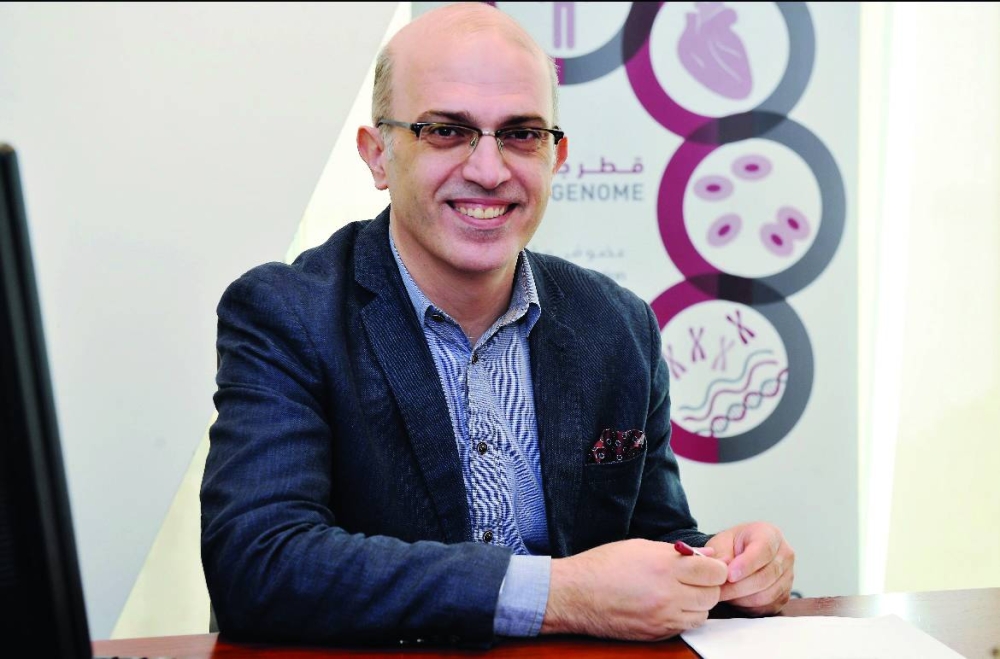
Dr Said Ismail
Precision medicine is set to change the landscape of healthcare in the coming days, a Qatar Foundation (QF) expert has said.
Dr Said Ismail, acting president of QF’s Qatar Precision Health Institute, notes that precision medicine will change the future landscape of healthcare by reducing costs through focusing on preventing diseases rather than treating them, and allow patients to take greater responsibility for their care and the prevention of illness, leading to more accurate care and fewer side effects.
Dr Ismail explained: “Many of our visits to the doctor in the future will focus on diseases that we may be at risk of contracting, rather than those that we have already contracted, as attention will focus on predicting and preventing future diseases and not just the individual’s medical history.”
According to Dr Ismail, this change is very important, as the patient will co-operate with the doctor to develop a preventive pathway aimed at avoiding diseases, rather than simply treating them after they occur. This will cut the cost of care and also provide more information to the patient about his health, with artificial intelligence technologies supporting the handling of vital healthcare data.
“Given the different response of individuals to medications, the first application in the clinical field will be to customise treatment for everyone based on his personal response,” he says. “This means that we will move from the concept of ‘one treatment fits all’ to personalised and effective treatments, which will be adapted to the needs and responses of everyone.
“Genetic screening programmes at birth will also be expanded, which means more diseases can be screened for from the moment of birth, and any potential health risks can be detected early.”
Dr Ismail emphasises the importance of ensuring that everyone benefits from precision health care, saying: “To avoid exacerbating existing health gaps, precision health care must be built on a detailed understanding of the genetic makeup of the individual.
“This requires an initial investment in genetic research for each ethnic group. With the support of other countries, developed countries with less capabilities can produce the necessary genetic data, which will also contribute to a comprehensive understanding of the human genetic map.”
To maximise the effectiveness and benefit of precision healthcare, Dr Ismail says, healthcare workers must keep up with rapid developments in the field and have a basic level of knowledge about how genetic testing works and how to interpret such data in general.
As an example of moving this strand of healthcare from the laboratory into direct clinical use, Dr Ismail points to a pioneering model for Qatar, where a genetic sequencing study conducted for a group of participants, revealed that some women carry a mutation in the two genes responsible for the familial pattern of breast cancer. They were contacted and early interventions were conducted, which helped detect tumours in their early stages and remove them.
“The success of this experiment means that it can be generalised to other types of familial cancers,” he added. “It means we will be able to identify everyone who carries a genetic mutation that may threaten their life, and, within the healthcare system, provide them with preventive measures that reduce the possibility of this disease occurring.
“This will enhance the translation of precision healthcare from research into preventive medical care in Qatar.”

